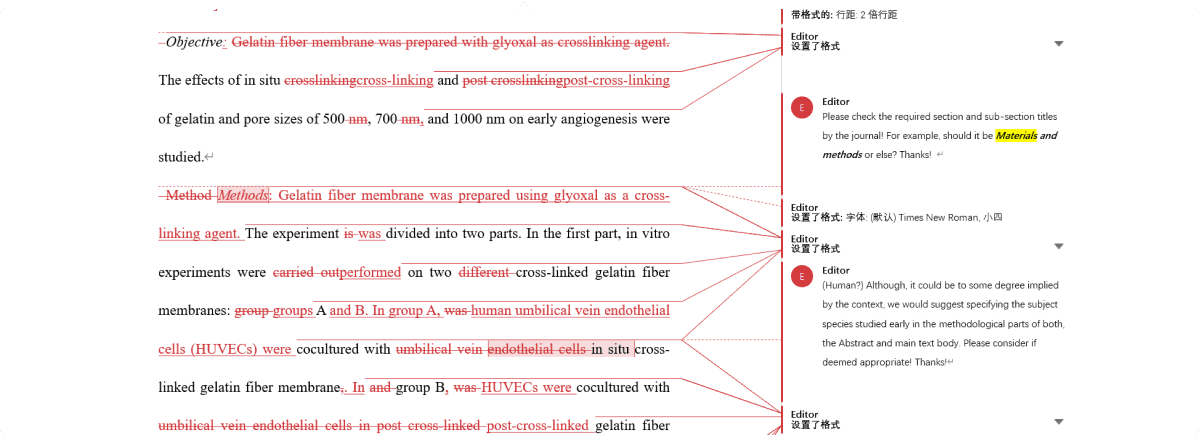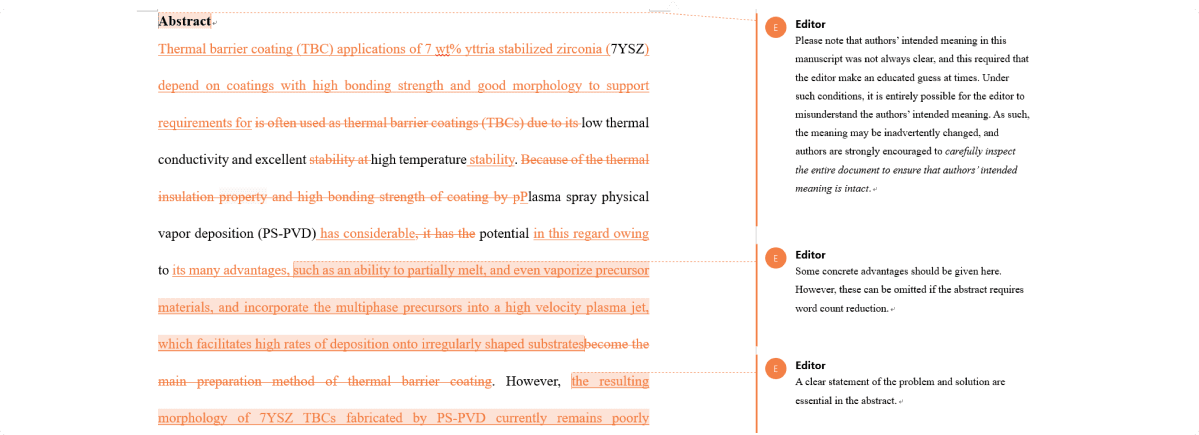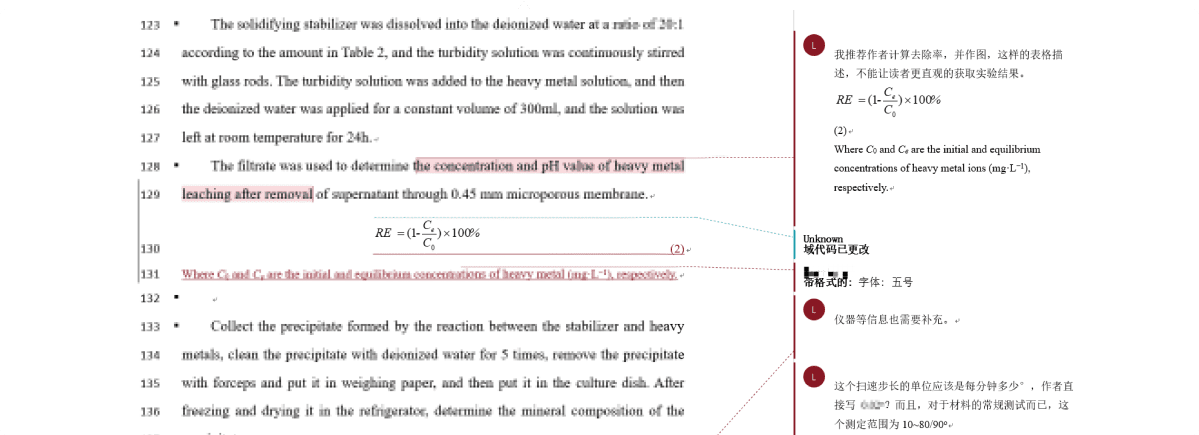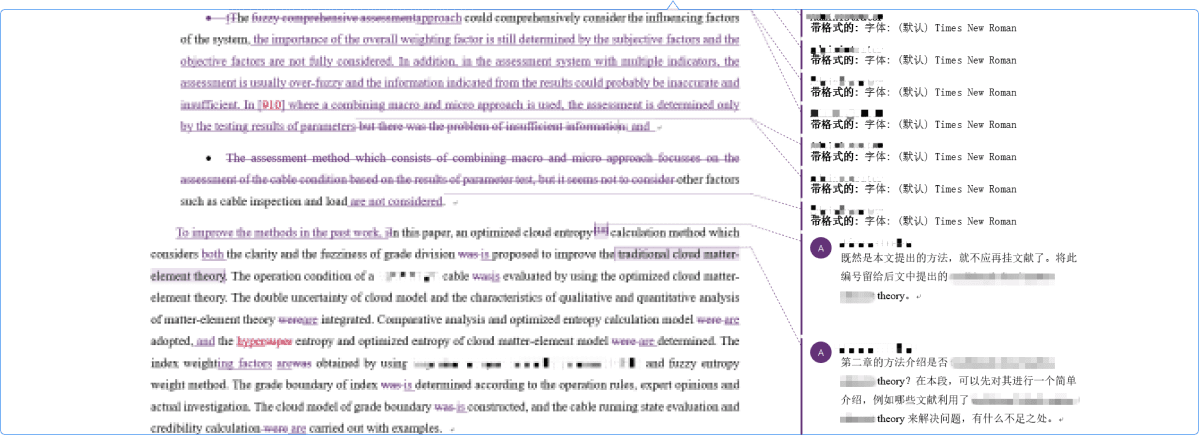AEIC与艾思编译展开战略合作,可为您提供包括编辑、翻译、润色、个性化修改、预审评估、期刊匹配、查重降重等学术论文写作与发表所需的专业编译服务。

SERVICE OPTIONS
服务类型

OUR STRENGTHS
我们的优势





SERVICE WORKFLOW
服务流程


SERVICE ASSURANCE
服务保障
质量保证
由编译专家和学科专家交叉审核,资深编辑质量把控(QC)
时效保证
保证在约定时限内完成任务
全程跟踪
客服全程为您服务,随时可通过系统追踪处理

SERVICE CASES
服务案例
- 翻译案例
- 润色案例
- 审修案例
- 高级翻译
- 母语翻译
毫无疑问,人工智能技术给人们的生活带来了便利与进步,但由其引发的诸多伦理问题也给人类社会带来了不同程度的影响。以对劳动力市场的影响为例,机器人取代流水线工人、聊天机器取代人工客服、虚拟主播取代主持人、快译机取代翻译人,人工智能技术的发展对传统就业岗位的影响日益明显。根据《中国青年报》的一则报道[2],中国广州东莞的松山湖长盈精密技术有限公司正常运转需要650名员工的辛勤劳作,如今工厂转型为“无人工厂”,有60条机器人手臂昼夜不停地工作在10条生产线上,员工只剩下60人,其中3人负责检查和监控生产线,其他人负责监控电脑控制系统,实现了用机器取代90%的人力资源,从而提高了250%的生产效率、降低了80%的缺陷率。类似这样的“无人工厂”,在各个行业都开始发力。根据《半月谈》2019年9月10日的一则报道[3],记者在义乌申通分拨中心看到,平台上设有240个方形分拣口,每个分拣口都代表一个城市或转运中心,700个“小黄人”分拣机器人开始工作后满场奔忙,但精准率能达到99.9%以上。据申通统计,700个“小黄人”一天工作10小时,能够分拣20万件快递,大大减少了人工作业。2017年,麦肯锡全球研究所(The McKinsey Global Institute)的一份报告《Jobs lost, jobs gained: Workforce transitions in a time of automation》[4]预测,到2030年全球60%的工作岗位中,至少有30%工作可以实现自动化,这意味着可能影响到8亿个工作职位。
There is no doubt that the AI technology has made our life more convenient and progressive, but it has incurred many ethical problems that have impact on human society to various degrees. Take its impact on the labor market as an example, with robots replacing workers on the assembly line, chatbots replacing customer support staff, virtual anchors replacing human hosts, and quick machine translation replacing human translation, the advancing AI technology is exerting an increasingly significant influence on conventional jobs. A report from China Youth Daily[2] said that Everwin Precision Technology Co, Ltd., located around the Songshan Lake in Dongguan, Guangdong, used to provide jobs for 650 industrious workers to maintain its smooth operation, but now the plant is almost an “unmanned factory”, with 60 robot arms working around the clock on 10 production lines and only 60 staff left out there — three in charge of inspecting and monitoring the production lines, and the rest responsible for monitoring the computer panel systems. With robots in place of 90% workers, the AI technology has improved its productivity by 250%, and reduced its defect rate by 80%. These “unmanned factories” have started to play a strong role in various industries. On September 10, 2019, a news story from China Biweekly Comment[3] said that at a distribution center of STO Express in Yiwu, Zhejiang, the distribution platform is equipped with 240 square sorting slots, each of which represents a city or a transfer center, where 700 “Minions” sorting robots are busy running and working out there, achieving an accuracy of over 99.9%. Statistics of STO Express show that the 700 “Minions” can sort out 200,000 packages in 10 hours every day, greatly reducing manual work. In 2017, the McKinsey Global Institute predicted in a report titled Jobs lost, jobs gained: Workforce transitions in a time of automation [4] that by 2030, among 60% jobs around the globe, at least 30% can be robotized, threatening 800 million jobs.
砂卵石地层透水性强,颗粒间级配较差,粘聚力弱,在降水作用下颗粒易流失,地表产生固结沉降。采用DEM-CFD耦合计算方法,分析降水过程中颗粒流失情况。FHY基坑基岩为中风化泥岩,渗透性低,降水对基岩影响极小,对此仅取砂卵石地层及黏土地层建模。砂卵石地层几乎没有粘聚力和抗拉破坏强度采用线弹性模型,黏土采用平行粘结模型。
数值模型长30m,高15m,粉质粘土厚度5m,砂卵石层厚度10m,地下水埋深为5m。模型中下部设置降水井,降水井内放置滤料,近似模拟滤料的过滤作用。砂卵石地层细颗粒的流失与降水速度和滤料有关,该计算模拟了管井内填充滤料为4mm、8mm、12mm和无滤料,每种滤料粒径下又设置了4m3/h、6m3/h、8 m3/h、10m3/h这四种不同的降水量,共20种工况。
The sandy cobble stratum has strong water permeability, poor particle size distribution and weak particle cohesion. As a result, the particles are easily washed away under the action of dewatering, causing consolidation settlement. The DEM-CFD coupling method was used to analyze the loss of particles during dewatering. The bedrock of the FHY foundation pit was moderately weathered mudstone with low permeability, and dewatering had little impact on the bedrock, so the numerical model was built based on only the sandy cobble stratum and the clay stratum. The particle sizes of sand pebble and clay were 0.001-0.6m and 0.02-0.13m. The linear elastic model was used for particle-particle contact model in the sandy cobble stratum that had practically zero cohesion and zero tensile strength, while the parallel-bond model was adopted for the clay stratum.
The numerical model was 30 m long and 15 m high, where the silty clay was 5 m thick, the sandy cobble stratum 10 m thick and the groundwater 5 m deep (Figure 9). A water outlet was reserved at the centre of the bottom of the fluid model to simulate the dewatering well, and filter media were generated near the dewatering well. The loss of fine particles in the sandy cobble stratum was related to the dewatering rate and filter media. The calculation model simulated the tube well filled with filter media with grain sizes of 0 mm, 4 mm, 8 mm, 12 mm. The dewatering rates for each filter media were 4 m3/h, 6 m3/h, 8 m3/h and 10 m3/h. In total, 20 working conditions were simulated.
- 高级润色
- 母语润色


- 个性化修改--环境方向
- 个性化修改--电气方向


X











.png)


.png)


.png)

.png)

